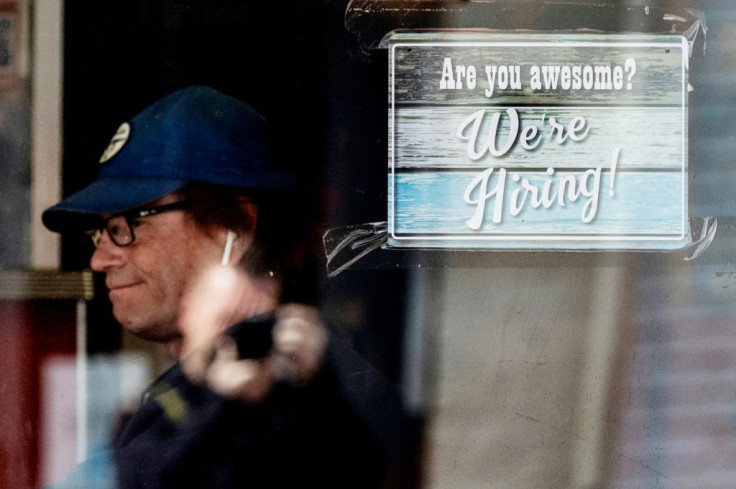In US, 2.5 million unemployed soon to be without income
The Oxford Economics analysts said the pandemic unemployment benefits may be a factor limiting labor supply.
American states are moving to cut pandemic unemployment benefits, a painful blow for millions of people who will soon be left without income.
With punishing jobless levels during the Covid-19 pandemic, unemployment benefits had been extended -- especially to the self-employed -- and extended further until September 6, even for those who had reached the maximum duration.
But now 21 out of 27 states governed by Republicans -- including Missouri, Alaska, West Virginia, Indiana and Georgia -- will soon reduce or eliminate additional unemployment aid, according to a note from analysts at Oxford Economics out Wednesday.
This means that some 2.5 million people out of the 16 million unemployed Americans will receive no more help starting in June or July, depending on the state, the analysts said.
One million more unemployed people will lose the additional $300 per-week benefit.
"It's going to be devastating," said Sue Berkowitz, director of the South Carolina Appleseed Legal Justice Center, an organization that advocates for the rights of low-income residents.
"It's going to have a huge effect if families don't have the stability of income coming in, and they can't keep the lights on, or they're unable to keep up with their housing or rent payment and all the other bills. All that has a detrimental effect on kids," she said.
Unemployment payouts vary from state to state and ranges between $230 and $820 per week, an amount that was raised by $300 as the effects of the pandemic hit.
With the US economic recovery underway many companies are now struggling to recruit, but the jobs that remain unfilled can be low-skill, low-pay openings.
South Carolina, for example, has a minimum wage fixed to the US federal government standard -- $7.25 per hour. Other states have raised their minimum wage much higher than the federal bar.
South Carolina's Republican governor, Henry McMaster, said in a May 6 letter that unemployment benefits are "incentivizing and paying workers to stay at home rather than encouraging them to return to the workplace."
"What was intended to be short-term financial assistance for the vulnerable and displaced during the height of the pandemic has turned into a dangerous federal entitlement," said McMaster, a supporter of former president Donald Trump.

He claims these benefits "pose a clear and present danger" to the health of South Carolina's economy.
Yet, if politicians "are so worried that somebody who is on unemployment can make twice as much as they can on minimum wage" then the state should raise the minimum wage -- something they refuse to do, Berkowitz said.
For his part, President Joe Biden recently said that federal unemployment benefits would remain in the states that want them, but did point out that it would be withdrawn from unemployed people who refuse to take a job.
The Oxford Economics analysts said the pandemic unemployment benefits may be a factor limiting labor supply.
But health concerns remain the main constraint, as a large percentage of Americans have yet to be vaccinated.
Another important factor, the analysts say, is childcare, especially since not all schools have resumed full-time in-person classes.
The spark that set off the anger of the Republican governors was the release of April unemployment figures: only 266,000 jobs were created over the month, far from the expected million.
New weekly filings for unemployment benefits are however trending lower, perhaps signaling stronger hiring in the months ahead.
Nonetheless, Republican governor of Montana Greg Gianforte got the ball rolling, removing the additional pandemic aid and offering a $1,200 bonus for anyone who accepts a job.
"Montana is open for business again," Gianforte recently declared, "but I hear from too many employers throughout our state who can't find workers. Nearly every sector in our economy faces a labor shortage."
Copyright AFP. All rights reserved.
This article is copyrighted by International Business Times, the business news leader




















